#somali men
Text

Abdulkadir Mohamed Nur
#suitdaddy#suiteddaddy#suit and tie#suited daddy#men in suits#suited grandpa#suitedman#suit butt#suit ass#suited butt#suited ass#suit daddy#suited men#buisness suit#suited man#suitedmen#Somali man#Somali men#Abdulkadir Mohamed Nur#Jama
2 notes
·
View notes
Text
#iconic somali men drip since centuries#somalia#somali history#somali men#just an excuse to use this song
1 note
·
View note
Text
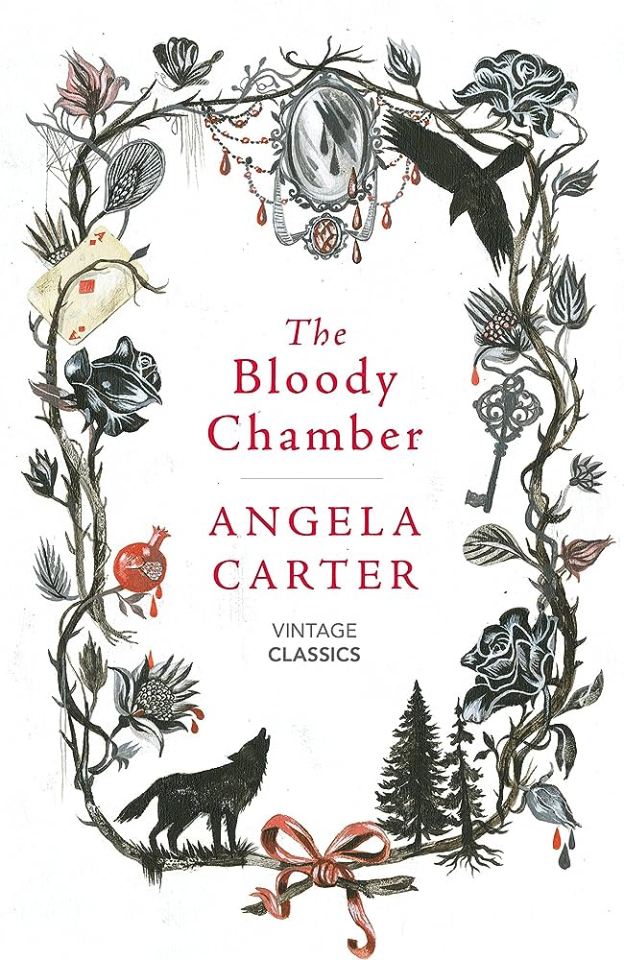
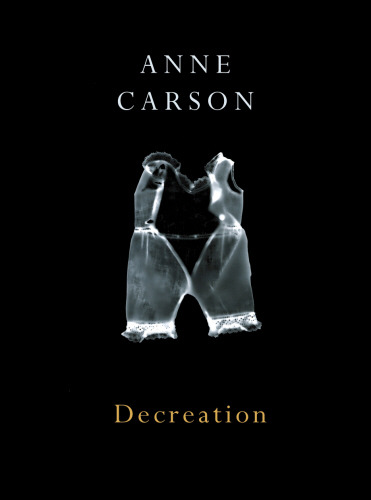
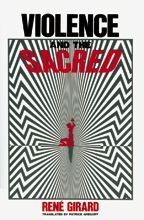
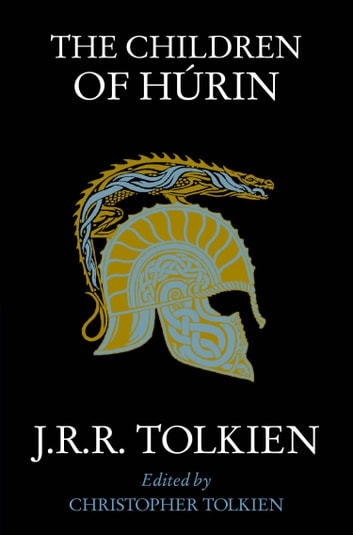
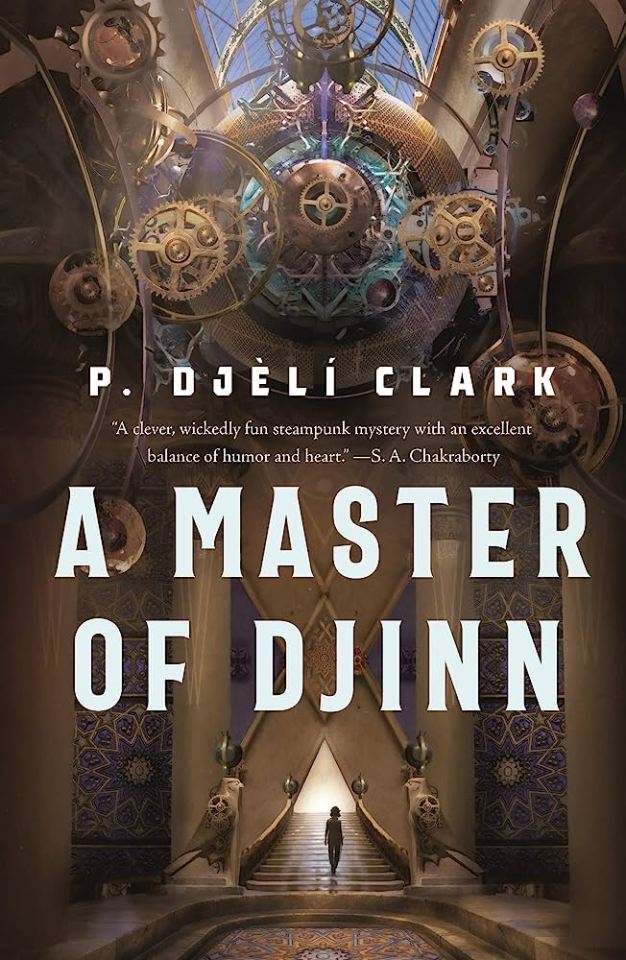
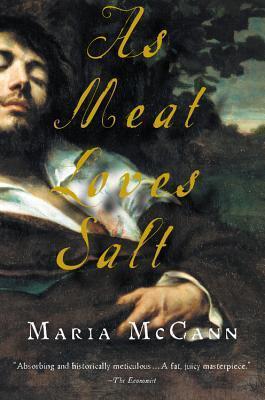
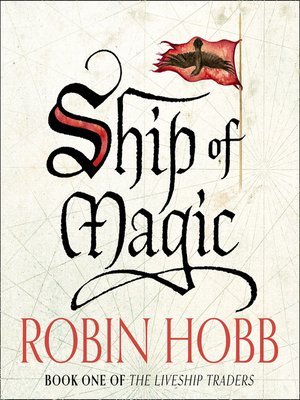
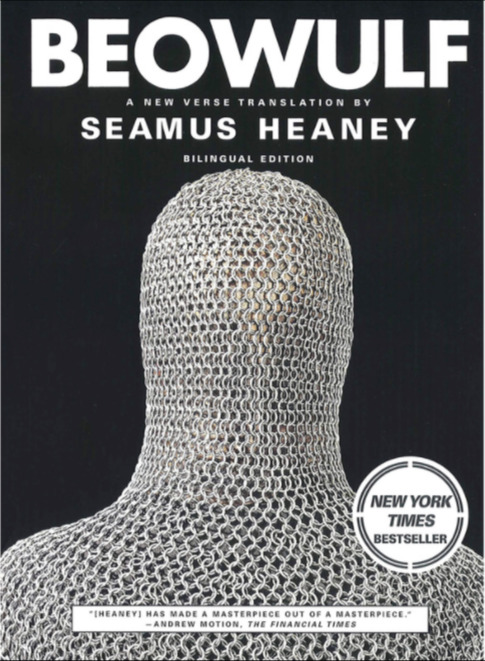
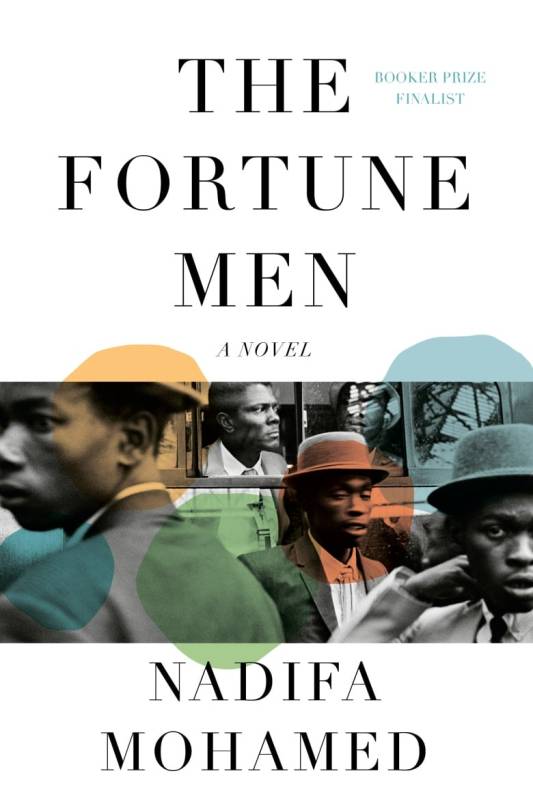
9 book recs meme! tagged by @roobylavender; ty faatima <3333. this ended up being longer than i wanted it to be but oh well
the bloody chamber & other stories - angela carter
angela carter quotes get circulated out of context on this site every 2-3 business days but i really do think everyone should tap into the bloody chamber at least once. i have written many a paper on this book & each time i uncovered some new aspect i had previously overlooked but which carter hadn't. i'm not sure what i could say about it that hasn't already been said; this is one of the best fairytale anthologies out there, period. not to mention, those quotes are so much better in context.
decreation: poetry, essays, opera - anne carson
the first book of carson's essays/poetry i ever read cover to cover after crashing against plainwater hard when i was like 16. decreation is very aptly named - it's disjointed & deconstructed & more than a little strange, moving from subject to subject, essay to poem to play to opera and back again, but it managed to capture my attention the way none of carson's other works did. decreation is a journey through the self (through sleep & the subconscious, the spirit & God) that doesn't really arrive anywhere but is worth reading for the journey. aside from showing me just what could be done with form, it also introduced to me to marguerite porete, who became my own personal medieval mystic-martyr special interest. i've since read a lot of carson, but i still think decreation is her most interesting (& maybe underrated?) work.
violence & the sacred - rene girard
a solid 75% of my essays in my last two years of undergrad used this text as scaffolding of some sort. even when i wasn't writing about violence, sacrifice, or mimesis, i was thinking about it. this is a dense book of theory that flies by because everything girard is saying is simultaneously insane & so so compelling. other people have if you're interested in rituals, the societal function of violence, the origins of the word scapegoat, or you just want to find a new jumping off point for your own thoughts on any of these topics, i think you would find violence & the sacred a really fascinating text.
the children of húrin - j.r.r. tolkien
i read the children of húrin directly after reading the hobbit at age 14; i wanted another 'short' 'standalone' tolkien book to read before diving into the lord of the rings or the silmarillion. (i clearly did not know anything about tolkien at this point in my life.) but i don't regret it at all, because it's probably the best thing he's ever written. CoH is, for the most part, about the tragic life of túrin son of húrin & how the curse on his family dooms him & everyone he crosses paths with. the tighter focus on túrin's various fuck-ups and miseries is more intimate, more detailed, and more character-driven unlike a lot of tolkien's first age work. it's also the darkest thing tolkien's written, in my opinion; this is his longest most extended greek tragedy moment & he leans into it 100%. hubris, unintentional incest, accidental murder, suicide - the children of húrin has it all. túrin turambar you will always be famous!
a master of djinn - p. djeli clark
this is my favorite new fantasy read of the last couple of years. i went into thinking i wouldn't like it at all—it's set in an edwardian-era alternate history magical steampunk cairo, for one—but clark's writing is incredibly immersive. he's very skilled at reimagining history in a way that both makes perfect sense & is wildly inventive. i thought some of its critiques of colonialism were a little shallow but otherwise it was fun. and lesbian! the main character is a dapper muslim butch, and while i'm not usually a 'representation for its own sake' kind of person, i couldn't help but be obsessed with fatma. it helps that it has a more refined perspective on islam compared to virtually any other muslim/arab fantasy novel i've ever read (this is not a high bar). a master of djinn comes with not one, but two short stories set in the same universe, so you can check out clark's writing for free & see how you like it.
as meat loves salt - maria mccann
this one was recommended to me by a twitter mutual almost 2 years ago and i haven't reread it since, but i think about it frequently anyways. it's a historical fiction novel set during the english civil war, following jacob cullen, a man initially of gentle birth who becomes a servant who becomes a soldier in the parliamentary army. characterizing it beyond that gets tricky; how do you properly describe the completely insane depths of rage, lust, love, & obsession that mccann plumbs? as meat loves salt is for the hannigram girls, the heathcliff/cathy girls, the girls who enjoy devotion & obsession going hand in unlovable hand. major tws for rape & violence, & i don't think i could read it again unless i was in the right headspace, but this one is really good.
ship of magic - robin hobb
i could have put any robin hobb book here, because i do think everyone should read robin hobb at least once. especially if you have even a passing interest in fantasy. ship of magic made the final cut because it's the perfect beginning for anyone who might be turned off by the slow character study that is the farseer trilogy. liveship traders is more fast-paced with a rotating cast of v unique characters and the best villain she's ever put to paper. it has talking ships, terrible parenting even for a fantasy book, representation for awful horrible teenage girls with no redeeming qualities whatsoever, & a truly original take on dragons.
beowulf: a new verse translation - seamus heaney
when i decided to minor in medieval studies, beowulf was at least 60% of the reason. i read the r.m. liuzza broadview translation for class (which i love, to be clear), but my prof recommended that we go read heaney's translation anyways, because it's both a good translation of beowulf & an exercise in poetic brilliance. to me, heaney's beowulf feels less like a translation & more like a free-verse poem he wrote while possessed by the spirit of a 7th century scop. i know there are better, more accurate/faithful translations, but this one has a spirit to it that's difficult to find elsewhere. honestly it's worth reading for the introduction alone.
the fortune men - nadifa mohamed
my token contemporary non-fiction fiction novel of the past couple of years. i'm always rooting for everyone somali but also? nadifa mohamed is just a great writer. this novel is set in 1950s cardiff, wales, and dramatizes the true story of mahmood hussein mattan, a somali man who was wrongfully executed for the murder of lily volpert. mohamed approaches the events with so much empathy for both victims and the extensive research she did shines through at every moment. the consistency and conviction and clarity of her writing will convince you that, even if you don't know anything about the city or the time period or the events unfolding, she definitely does. she was kinda robbed for the booker but that's just my opinion.
tagging @derelictship; @misericordae; @hesitationss; @yevrosima-the-third; @gawayne; @butchniqabi & anyone else who wants to do it!
#are these even recs they're like mini-books reviews. sorry you get my unfiltered thoughts i usually reserve them for twt#if you dont read anything else. PLEASE READ THE FORTUNE MEN OK. support my somali sister ty#txt
15 notes
·
View notes
Photo

Somalli Findlay for L'officiel Hommes Thailand September 2021, photographed by Wish Thanasarakhan
10 notes
·
View notes
Text
Mens ihram gives high fashion. People had it right back in the day.
0 notes
Text
Somalia’s only all-female media team, Bilan, is launching the country’s first TV current affairs show to be hosted by a woman.
The debate show, which plans to address some taboo subjects, will also be the first programme on Somali television to have a panel of at least 50% women, and the first to broach contentious topics, such as a critical shortage of female teachers and the challenges faced by women trying to get into politics, as well as environmental issues.
Reaction to the pilot was overwhelmingly positive, said the host, Naima Said Salah, and exposed the impact that a dire lack of information had on girls. “One young woman in the audience shared her own experience. She remembered the exact time and day when her period started because she had no idea what was happening. She thought she was dying. It was only after she told her older sister, that she understood,” said Salah, a senior reporter at Bilan.
Salah added that she was proud to bring the subject of periods into public debate. “Women, including me, never had the opportunity to learn about periods as girls; even our own mums don’t discuss it. People think this is taboo, but it is a fact; it exists and we cannot ignore it.”
Somalia’s media sector is male-dominated, with a strong focus on politics. All six founding members of Bilan have faced discrimination and harassment in their careers. The project was set up to offer women a safe space to tell the stories they wanted to tell, and has covered a wide range of under-reported stories, including Somalis living with HIV, child abuse and postnatal depression.
“One reason why women’s stories are rarely told in the Somali media is that most reporters are men. Bilan will change that,” said Ibrahim at the time. “Women will speak to us because we too are women. They will allow us into their homes, their prayer rooms and their private spaces.”
233 notes
·
View notes
Text
Today my heart is so unbelievably heavy for Carlee Russell, who was lured out of her car and is now missing.
For the Somali girl whose brother, who is now being praised by thousands of men online, mutilated her for not wearing a hijab in a tiktok.
For the indigenous girl who was sold and raped by marines at Camp Pendleton.
For the little girl from Afghanistan who is begging her father to let her get an education.
For every single woman and girl who is currently facing injustices beyond comprehension at the hands of men as I type this.
No people should ever be made to endure such relentless violence and trauma. No humans should have to be built to handle this much suffering.
I just don’t even know what to say anymore. All of us deserve so much better than this.
#radblr#idk what to even tag this im just sad#please take care of yourselves ladies#we aren’t built to handle this much terrible info at once
412 notes
·
View notes
Text
tips for writing arab characters
writer here!! im a middle eastern writer whos noticed that theres a VERY significant lack of info on how to write arabs, so im here to help !! (however, keep in mind that im specifically gulf arab and may not be able to provide as much info on levant arabs or north african arabs. if there are any on here, feel free to reblog w more info !! )
dont get arabs mixed up w muslims. yes, a large portion of the arab population are muslim, but youd be surprised at the number of non-muslim arabs that exist. if you wanna write abt a muslim character, a post i made that might help is here
list of arab countries, with the adjective:
algeria — algerian
bahrain — bahraini
the comoros islands — comorans
djibouti — djiboutian
egypt — egyptian
iraq — iraqi
jordan — jordanian
kuwait — kuwaiti
lebanon — lebanese
libya — libyan
morocco — moroccan
mauritania — mauritanian
oman — omani
palestine — palestinian
qatar — qatari
kingdom of saudi arabia (ksa) — saudi
somalia — somali
sudan — sudanese
syria — syrian
tunisia — tunisian
united arab emirates (uae) — emirati
yemen — yemeni
dialects/language:
dialects greatly differ—the egyptian dialect is the most common, followed closely by the levantine dialect
classic arabic is called fusha (fuss-ha), used in things like official documents, media, education. every arab knows it but its not used in day to day language except in media (all dialects basically come from fusha, but with slight changes)
'p' and 'g' (as in 'gurgle' or 'goal') dont exist in the arabic alphabet, theyre replaced with 'b' and 'j'
depending on where theyre from, they may also learn a third language besides arabic and english (e.g. moroccans know french, a berber arab may know berber)
appearance:
arabs look different based on where theyre from. if theyre from the arabian peninsula, they have thick curly dark hair, tanned skin, and dark eyes. levant arabs are lighter skinned, and green/blue eyes are more common with them
adding on to previous point, arabs have a variety of skin tones, even if theyre siblings. using a real example, me and my older brother respectively look white passing and afro hispanic
dark irises are considered better looking than lighter colored eyes. eyes are usually thick-lashed, with big round slightly upturned eyes
big noses are common, along with full lips (and hereditary dark circles for those with more tanned skin)
high cheekbones and well structured faces are also prevalent
culture:
varies depending on location
influenced by indian culture, IS NOT INTERCHANGEABLE WITH INDIAN CULTURE. that was aladdins mistake
poetry is so common, especially with romantic themes
songs also have romantic themes
youd be surprised at how romantic arabs are
dances vary extremely, from dabke (palestinean dance done in groups, consisting largely of leg/foot movements) to yola (emirati dance with battle origins, done using canes or fake guns) i recommend watching videos (tiktok has a lot of videos esp of dabke)
women also dance but you wont find a lot of videos of it bc its inappropriate
etiquette:
things such as giving someone your back, or facing the bottom of your feet towards someone are considered rude
pda is also taboo (even with straight couples or even sometimes married couples)
cheek kisses are a common way of greeting, but not between genders
in some gulf countries, men greet each other with a nose kiss (not in an intimate way) just stubbing their noses against each other
genders do not mix at all. schools tend to divide girls and boys into two sections starting at a certain age (around age 10/11), and mosques are split into the mens side (usually larger than womens bc men use the mosque more)
having an extramarital relationship is very very taboo (even w hetero relationships) but it still happens. a lot.
family dynamics (note that this is obviously a spectrum. this is the general dynamic, but obv it ranges from family to family):
NOT ALL OF US HAVE ABUSIVE PARENTS. sure theyll spank you if you skip school, but thats not necessarily abusive. its more strict, and youd be surprised at the amount of freedom some parents give their kids
yes, arranged marriages do happen. no, they arent necessarily forced, it just means that your parents had a hand in deciding who youll marry. yes, marrying cousins is a thing, but its much less prevalent now (also, ew)
fathers care. a lot. they dont show it, but they do. they also tend to joke around a lot
mothers tend to be the rule enforcers, and by far our moms are our best friends. we tell them EVERYTHING i swear
aunties gossip a lot
uncles are a safety hazard
its not uncommon to have a large number of cousins (mainly bc arabs tend to have a lot of kids)
the average number of children 3 per woman, but from personal experience the older the generation the more kids (e.g. my great-grandmother had a whopping thirteen kids, my grandmother had seven, my mom has six, but a couple of my aunts only have one or two)
social class/work environment/school environment:
schools tend to be either arab curriculums but there is a high density of american/british curriculum schools
boys and girls tend to be separated in school around age nine/ten but some schools will be mixed genders up till graduation
yes, women work, tho admittedly some of them tend to have careers more than jobs (e.g. photographer, writer, etc while the men handle engineering, economics, etc)
no, not all of us are rich. in fact, countries like jordan, egypt, tunisia, morocco, and yemen (and infamously palestine) are acc struggling w poverty. its mainly just gulf arabs who are rich
furthermore, gulf arabs may be generally rich but a large chunk of them have the same lifestyle as an upper-middle class family in the usa. rich but not too rich. dont be fooled by the videos of guys wearing kandoras and driving lambos
speaking of kandoras...
outfits (keep in mind that spelling may vary since its all transliteration, and pronunciation may vary depending on region) (also keep in mind that even if we still live in the middle east, WE CAN WEAR JEANS AND HOODIES AND BAND SHIRTS. just, usually cover up more in public):
abaya: loose overgarment worn by women
jilbab/chandoor: also worn by women, type of long dress or tunic
the white robe all of yall know is known as a thobe, dishdasha, or kandora
the colored headscarf worn by men is known as a ghuthrain in the gulf, kevfiah in the levant. its kept in place with a black cord called a aghal, and under it they wear a skullcap called a thagiyah
those are the most common ones, however if youd like to get a lil more specific on clothong, the ultimate guide to arab clothing is here (it also has specified clothing for individual countries)
hope this helps, feel free to reblog w more info if you have any !!
#writing tips#writing arabs#arab#writer sources#writing help#writers on tumblr#writeblr#writing advice
100 notes
·
View notes
Text
what is this and where can I watch it nw and plz Nicola give me one chance? the way tv wasn’t invented before nicola coughlan showed up is actually insane, what even was TV before Nicola Coughlan? how does she keep doing this and why isn’t she my girlfriend yet? this world is so unfair 😔 like just 1 tiny chance plz nic

another yt man with a blue coat getting nic before me I’m not saying this feels like a hate crime but it really does! Because what do they have that I don’t? If Nic loves the color blue so much I’m the perfect woman for I’m literally Somali my blo0d runs blue there’s nothing more blue then me those yt men could never be that!
watch me dress up as Smurf or an Avatar bc I can’t take it no more then getting her while I’m not it’s crazy
#I genuinely can’t imagine a time where tv existed before Nicola is that weird?#nicola coughlan#bridgerton#derry girls#I think I should go see a doctor bc why can’t I remember tv shows and tv existing before nic showed up our tv as Clare#ngl I’m scared and worried a bit#clare devlin#penelope featherington#penelope bridgerton
71 notes
·
View notes
Photo
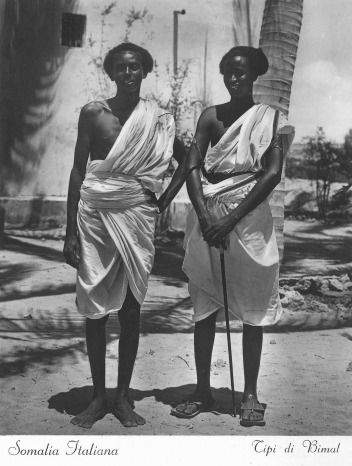
“Figure 1.2 A postcard of Somali men taken by A. Parodi in 1930.”
Source: Heather Merril - Black Spaces: African Diaspora in Italy (2018: 48)
30 notes
·
View notes
Photo

On this day, 11 June 1919, racist rioting broke out in Cardiff, Wales, when white, mostly ex-servicemen attacked local residents of Afro-Caribbean, Somali, Malay, and Yemeni descent. Experiencing considerable hardship after the end of World War I, many ex-servicemen were in dire financial straits, and had been encouraged by racist media, as well as some unions, to see workers of colour as having taken some of "their" jobs and housing. Tensions erupted on June 11 after a confrontation between a group of Black and white men in the Butetown area of area of the city escalated. Mobs of whites then attacked houses where Black and Arab workers lived, smashing windows, wrecking interiors and throwing furniture into the street. People of colour then began to defend themselves, boarding themselves inside their homes and arming themselves with stones and rocks. One man, a ship's fireman called Mohammed Abdullah was attacked and soon died in hospital with a fractured skull. By the time the disturbances ended three days later, three other men were dead, although it is unclear if one of those deaths was related to the riots as such. The riots in Cardiff were just one of several such incidents around Britain in 1919. Other racist mob attacks on African, Chinese, South Asian, Afro-Caribbean and Arab workers – usually seamen – also broke out in cities like London, Glasgow, Newport, Liverpool, Salford, South Shields, Barry and Hull. Shamefully, in some cases the violence was egged on by union leaders like Manny Shinwell, later a Labour MP, who demanded "action" against Black sailors on the morning of an attack on sailors from Sierra Leone in Glasgow earlier that year. More information, sources and map: https://stories.workingclasshistory.com/article/8319/cardiff-racist-riots https://www.facebook.com/photo.php?fbid=642481014591784&set=a.602588028581083&type=3
94 notes
·
View notes
Text
Why does Arrakis have another name? And why is that (native) name the title of the book?
So DUNE (novel)'s wiki page cites a quote where Frank Herbert said he chose the title DUNE because it sounds like "Doom", you know , in line with the ecological message of the books.
In addition, I would like to suggest that DUNE is yet another word that he borrows from Arabic, as with so many other references throughout the saga. Just as FREMEN is a worn down version of FREE MEN I believe DUNE is a time eroded version of DUNIYA. According to Google Translate DUNIYA means world in Arabic, Turkish, Corsican, Swahili, Somali, Twi, Zulu, Hausa, Sanskrit, Urdu, Hindi, Bengali, and Yiddish. (I might hv found more instances if I kept on looking.) It seems like a good fit as the Fremen language is full of words with Arabic roots.
Given that Dune is the lesser known name of the planet, it would also make sense to call the novel DUNE if it meant world to Frank. Unless the word DUNE made a big statement (like announcing he's about to give you a whole new world) it makes no sense for Frank to unnecessarily complicate things by giving Arrakis a second name.
Sidenote: the Fremen who initially landed on Arrakis (thousands? of years before the first novel starts) were technicians, scientists, mathematicians, etc who were fleeing the oppression of a slaver- scientist. They couldnt go back to the planet they were captured from and had to make Arrakis their new homeworld out of necessity. In light of that, calling this place their DUNIYA makes sense.
Postscript: there is another layer to the word DUNIYA in that it also refers to the transient nature of the world we live in. In Arabic, it can mean this world as much as it can mean this temporary world. And the original Fremen had initially thought that they would find a way to go back to their home planet and that Arrakis would be a temporary home. So yeah, DUNIYA makes sense in that way too.
Share your thoughts, please!
#dune 2#language#frank herbert#arabic#arrakis#denis villeneuve#dune#sci-fi#science fiction#jason momoa#timothee chalamet#dune 2021#rebecca ferguson#sharon duncan-brewster
114 notes
·
View notes
Text
When I was a kid and the other kids in school used to bully me my mom would say “what did you do to them?” Ofcourse my mom loves me and stuff but it’s just the culture.
There is a Somali saying “Wahiid Maa Walaan mise waani baa walaan”. Basically means “ is one person crazy or is everybody crazy”.
If you got multiple ppl to beat your ass, is the ppl wrong or are YOU the problem. Ofcourse my mom tried her best for me. The bullying stopped when I moved from a predominantly white prep school to an Islamic school
You feel like your the weirdo of having crushes on your female friends, feeling tingly when they hug or kiss you and feeling disgusted when you have dreams about girls in your class.
If everybody is straight, everybody dealing with men, what makes you so special? It’s not even the perversion of being gay that would piss them off the most. It’s the fact that I’m trying to look “different” and live a different lifestyle than everybody else. Even though I’m mush older now, I still get those thoughts of disappointment. Even time a shawty is tweaking I’m like fuck. This is what I deserve 💀. Also why the “I’m a man, I can’t deal with this shit” stems from. But I know the brutal life of being 5”3 Hamza. So I’ll pass.
My brother would always say “why are you different than the other girls ? Why do you want to be a boy so bad?” All I can say is 🤷🏽♀️. I don’t know why I hate feminity on my body. I don’t know why I like short hair and the boxy shape of men’s clothing.
Being different sucks though.
11 notes
·
View notes
Note
gods as someone that was raised in several churches (mom minister so I got all the shitty behind the scenes drama starting at like 4yo and never really believed beyond general agnostic-ish feelings. which apparently is a super common trend for pastor/minister kids to nope tf out of the church asap) the 'forcing you to be The Right Christian™ Or You Don't Deserve™™ Charity' thing hits hard. especially when I psych myself out of asking for help because I'm constantly remembering how openly hostile some of those places are to even poor christian people using their services.
like one particular church (the "open and affirming" one that threw the only trans woman out of the 20 person congregation because the old white guy treasurer learned she was trans after like 8 years and suddenly didn't want to look at her, or "worse", hear her sing) had a monthly meal for the (very poor neighborhood) community. they'd make everyone pray to God for 20 minutes before letting anyone touch even a slice of bread, but lock them out of the sanctuary during church hours because they were, I wish I was joking and that this wasn't a direct quote, "dirty homeless looters". you had to pray correctly to get food but don't you dare sully the churches doorstep trying to attend worship. meanwhile the church people organizing it are going off about how dare these people be standing in line for food instead of attending church as Real Good Christians Should.
🙃
That's fucking frightening and unfortunately I have my own similar stories.
Tw for racism, homophobia, anti-Muslim, and just... really bad stereotypes.
One of the reasons I started walking away from the church (there's a couple reasons) was at our summer mission trip (yes, I know.) In previous years, we had kept local: deep cleaning the homeless shelter, renovating the local Latino advocacy building, soup kitchen stuff. But one of the (more wealthy) girls in our group wanted to try doing a mission abroad.
Best we could do is Toronto.
We signed up with a shelter there and they gave us some tasks. The shelter REALLY played up how bad it was in this part of town- the gang violence, the culture of sin, the regressive way the men treat women in their home country.
So like... I'm from America. I've been to Chicago. Not to compare but like... hmm..
So during the introduction to how terrible it is in Toronto (...?) Our ambassador takes us through parts of town to show us what it's like to be homeless there. It was a very somber thing. We were given a small amount of money and we were to pretend it was all we had. Try to survive on a few coins.
We take our tour. Remember that this is supposed to scare us.
She takes us to an area where we hear drums. We hide behind a building. "You hear those drums? This is a homeless village. Young people come here seeking community, but you will be turned away if you cannot provide a service for them. They will only use your body for so long."
So... I'd been to drum circles before. And this was very much a drum circle. Like sure these people were a little crunchy, but it was pretty clear to me that these guys were just cutting loose after the day of work.
She takes us to the red light district.
"This is the red light district," she says. "This is where all the homosexuals come. You see that there are many young people here who are attracted to the high life. But you will see: the older men will always come looking for the younger one's to manipulate and that's how many homeless people become prostitutes."
I, a half-in-half-out of the closet lesbian, for the first time in my life, saw two happy gay men arm in arm and it was moving for me. I saw people having a good time. I'd already figured out she was full of shit. Now I was mad.
So we get back to the church we're staying at and I'm already having second thoughts about this visit to Canada. She tells us that our mission this week is to tutor some Somali kids in English and math.
... I feel... oncoming dread.
They didn't give us a lesson,plan or anything. Were supposed to just help them learn where they're stuck in their lessons. And then on Friday we'll have a trip to the museum of science and industry.
I was the only one in our group that had ever encountered a Muslim to know that Friday was their holy day. And that was when I realized that it was a conversion tactic. I asked her about it like... 'is Friday really a good time to do that?' And she was like 'well, it's the last day you'll be here and we want to celebrate don't we?'
And I was livid, but I was in a different country with a bunch of people who believed this woman's lies. And I didn't say anything to my friends because I was already kind of an outcast there, no one was going to believe me.
So I held my tongue, but from then on I lost a lot of respect for Christian-run charities and even now I'll always be looking for their angle.
124 notes
·
View notes
Text
I don't understand how the Houthi Yemenis are supposed to be pirates.
Piracy is a profit-seeking activity: pirates raid shipping or coastal settlements, with the aim of stealing cargos, vessels and men for gain, with sinking ships and disrupting commerce a secondary aim -- you can't steal from ships that aren't coming into your waters.
But it seems the Houthis aren't robbing the ships -- which was famously the problem with e.g. the Barbary pirates, or the Somalis of recent history -- they are just trying to sink them, which is unusual behaviour for pirates, but not very unusual behaviour for a government taking advantage of governing a territory that is a critical point in a trade route.
And the difference is that the first kind of sailor is essentially a wet hoodlum, a libertarian, an enemy of the human race, who magistrates of any nation, race or creed will recognise as of little worth, but the second has actual war goals, which powers may think worthy or unworthy.
7 notes
·
View notes
Text
Another protest against femicide ignored by American media
Naima Said Salah in Mogadishu Tue 13 Feb 2024 02.00 EST

Protesters in Mogadishu holding posters of Lul Abdi Aziz Jazira, who died after being set on fire. Photograph: The SIHA Network
The deaths of three women in one week, all allegedly murdered by their husbands, has caused outrage in Somalia and sparked days of protests over the country’s femicide rates.
Police have named the suspects in all three killings, which took place in the first week of February, as the dead women’s husbands. Two of the victims were pregnant. Even in a country where – after more than three decades of conflict – death and violence are part of everyday life, there have been demonstrations in the capital, Mogadishu, with protesters holding up placards showing photos of Lul Abdi Aziz Jazira in her hospital bed. The 28-year-old had been doused with petrol and set alight. She suffered severe burns and survived in agony for seven days after being attacked.
Her brother, Amudi Abdi Aziz Jazira, said neighbours had heard a “ferocious argument” and later broken down a locked door to reach the badly burned woman and take her to hospital.
Jazira, 28, was a widow with six children when she met her second husband at the airport in Mogadishu where she worked.
“I thought they were a happy couple,” said her brother.
A police spokesperson, Sadiq Dudishe, said the suspect had gone to an area where there was heavy fighting between the government and the Islamist group Al-Shabaab, which has controlled much of Somalia for 17 years.
“This made it difficult to catch him,” said Dudishe. “The intense insecurity meant it took time for us to find and arrest him.” A man is now in custody in Mogadishu.
In the southern district of Qoryoley, Saleban Haji Abdi has been arrested and charged with stabbing 22-year-old Fus Mahfud Mohamed to death. He is alleged to have attacked his wife of seven years, who was pregnant with her fourth child, on 3 February.
Mohamed’s father, Mahfud Mohamed Haji, said disputes between the couple had been previously dealt with by their families through Somali customary law known as xeer.
“I consistently provided mediation using our traditional system,” said Haji. “But the arguments didn’t stop and eventually I distanced myself from them.”
He was unable to get to his daughter’s funeral because of the recent floods which had destroyed the roads.
Police claimed the time and location of the murder had been meticulously planned by the killer, who cut Mohamed’s body into pieces.
The third woman to die has not been named, but police allege a woman was shot by her husband in Lower Shabelle, southern Somalia.
On 4 February, another man was arrested in the town of Afgoye, near Mogadishu, outside his family home in possession of gasoline and matches. Police said neighbours intervened in what appeared to be an attempt to set his wife and children on fire.
The chair of the Somali Women Development Centre, Maryam Taqal Huseina, said protests would continue until there was justice for the three women.
“Women are expected to be silent in Somalia,” she said, adding that she thought these women were murdered in order to shut them up. “We are going to continue to make noise until there is change,” she said.
Huseina said many people, especially men, either supported or accepted domestic violence and other forms of abuse against women as part of everyday life.
“With the advent of social media, new forms of abuse are on the increase including girls being blackmailed after being drugged and filmed while they are being raped, sometimes by more than one person. Some of these videos are sold on social media platforms.”
The governor of Mogadishu’s Benadir district, Yusuf Husain Jimale, has promised that Jazira’s children will receive financial support but there are concerns the authorities are not doing enough.
There is no specific law in Somalia against domestic violence.
In 2018, a comprehensive UN-backed sexual offences bill was introduced but it has not yet been passed by parliament. In 2020 a new sexual intercourse related crimes bill was proposed, which relaxed current age restrictions to allow for marriage at puberty and legalise forced marriage as long as there is family consent.
Naima Said Salah is a writer with all-female media team Bilan in Somalia. It is funded by the European Union through the UN Development Programme and hosted by Dalsan Media Group in Mogadishu
#Somalia#Femicide#In one week three women were killed by their husband#Two of the murdered women were pregnant#Pregnancy and domestic violence#Rest In Peace Lul Abdi Aziz Jazira#Rest In Peace Fus Mahfud Mohamed#That father married off his daughter at 15 years old then distanced himself from her when the couple fought#Somali Women Development Centre
5 notes
·
View notes